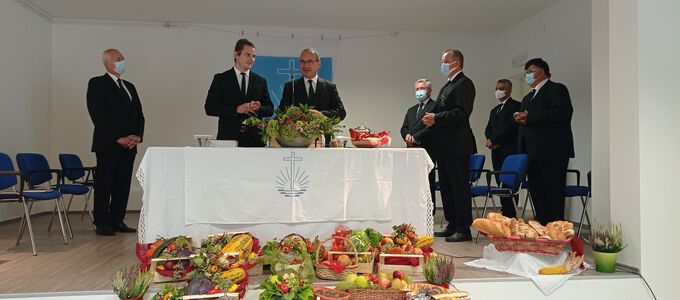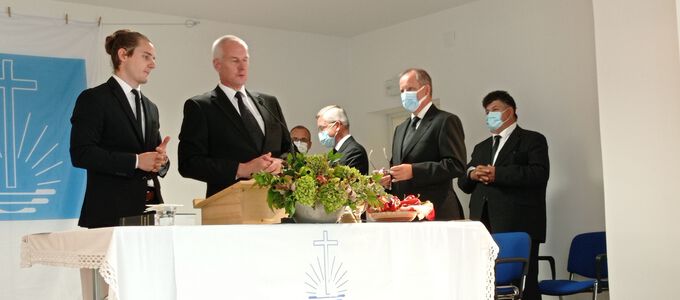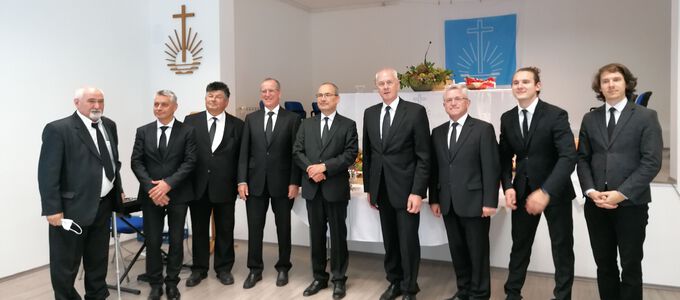
“It does not say in the calendar: today you have to thank God. Gratitude is not an obligation.” It is rather an effect of faith. The belief that God is great makes us grateful, Chief Apostle Jean-Luc Schneider says.
Chief Apostle Jean-Luc Schneider visited the congregation in Zagreb, Croatia, for Thanksgiving on 3 October 2021. He based his sermon on Psalm 145: 2–3: “Every day I will bless You, and I will praise Your name forever and ever. Great is the Lord, and greatly to be praised; and His greatness is unsearchable.” In the beginning he suggested: “Let’s occupy ourselves with the greatness of God today.”
God is the Creator. The creation is magnificent “when you think about the flora and fauna and the diversity there is”, the Chief Apostle said full of fascination. Even scientists say: “Everything is wonderful, everything is perfect.”
God is omniscient. God is omniscient. God knows every human being and every thought. “It may be a strange thought, but just think about the billions of people there are,” the Chief Apostle said. “God knows every second what every human being is thinking and feeling.” And God not only knows, but cares and takes an active interest in every human being because He loves them.
God is perfect. “He has never made a mistake,” the Chief Apostle assured the congregation. “What He says and what He does is perfect. There is no need to correct anything.” God does not need to say: “I have to do this differently.” He is simply perfect, the Chief Apostle said.
God’s love for mankind is great. God’s love for mankind is great. “Remember that he created man out of nothing,” the Chief Apostle reminded the congregation. God gave man the ability to think, to speak, and to love. He even entrusted man with the creation—without his having deserved it. And even though man separated from God, God’s love for him did not cease: “God gave Himself. He sacrificed Himself so that man could be saved.” And God has even greater things in store than merely repairing what man has destroyed: “He will create a new world and wants to give everything to man again.”
God is greater than we can imagine. For one thing, God’s horizon is much broader than ours. We only see the earthly. “But God sees further, He does not only see the living but also the dead,” the Chief Apostle said. There too God works in a marvellous way and thus sees much further than mankind: “We are busy with our lives and we think of the day of the Lord; that is our horizon. God, however, sees much, much further. He sees into the new creation.”
Secondly, His help is greater than we humans can imagine. “We are naturally limited and think as human with our human capabilities.” God, however, has other possibilities, the Chief Apostle said, recalling Jesus Christ, whose death was thought to be the end. Then God showed by His resurrection that nothing is impossible for Him. Or think of Saul, whom the first Christians feared and whom God called against all odds to become an Apostle.
Trusting in the greatness of God. The Chief Apostle urged the brothers and sisters to take a close look at the greatness of God. This would have an effect: “I believe in the great God, I trust Him, nothing is impossible. I trust in His love. He will do the right thing. And I trust in His word, in what He says; He is right and I am going to do it.”




















